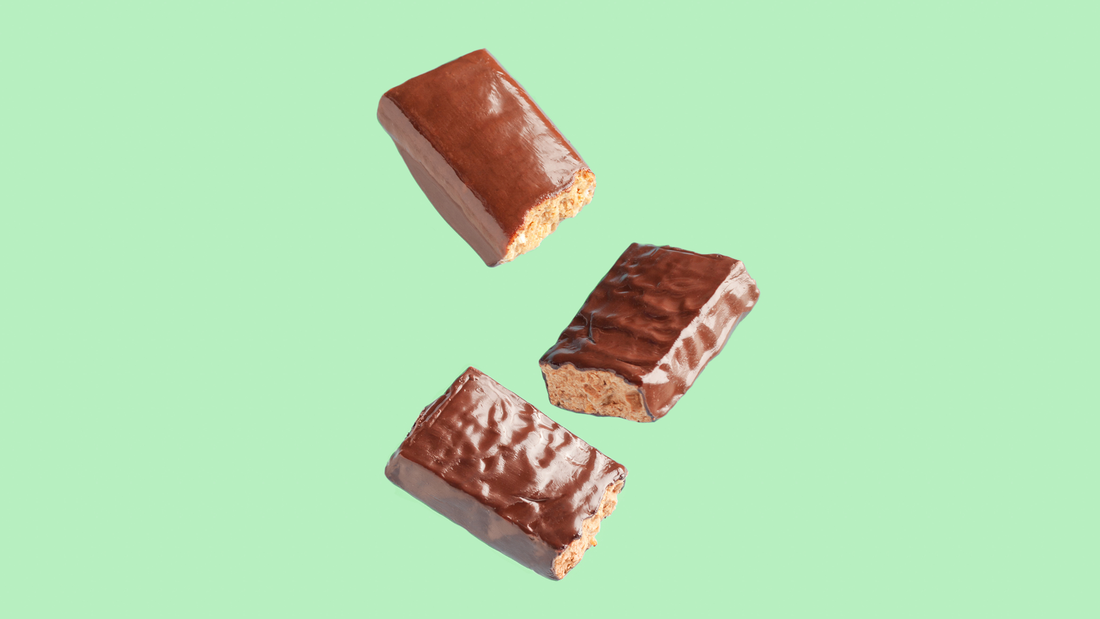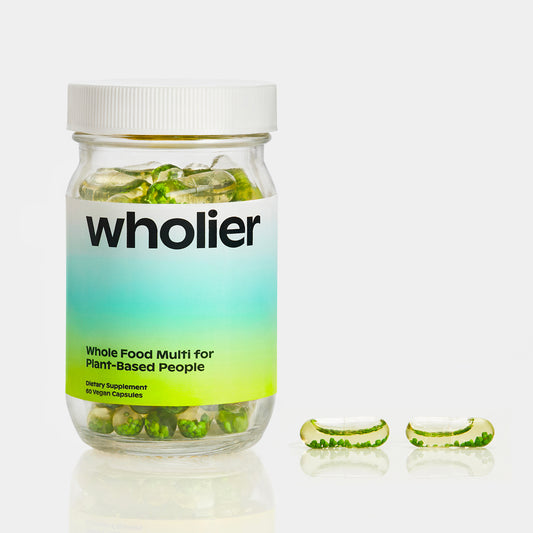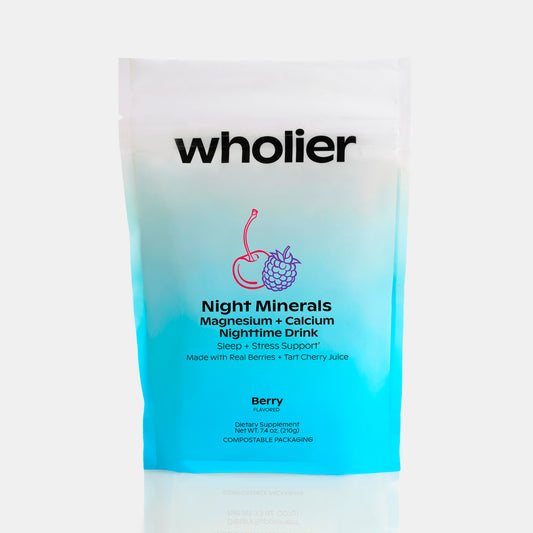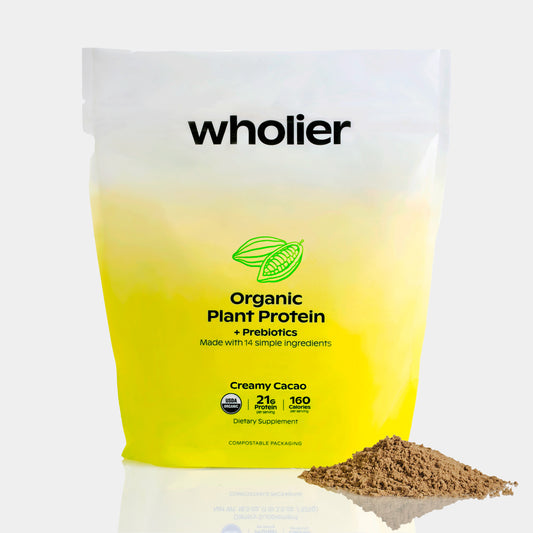
The Impact of Maltodextrin: From Supplements to Snacks
Have you ever checked the ingredient list on your favorite snacks, protein shakes, or supplements and stumbled across the word "maltodextrin"? Let's dive into what this ingredient is, how it's made, and what surprising effects it might have on your health.
What is Maltodextrin, and How Is It Made?
Maltodextrin, a white, tasteless powder, is a polysaccharide—basically a bunch of glucose units strung together. It's derived from starchy foods like corn, rice, or potatoes.(1) But how does it get from being a humble spud to a common food additive?
Well, it's all down to a process called partial hydrolysis. First, the starch is cooked. Then, it's broken down by adding acids or enzymes, similar to the digestive enzymes in our own stomachs. This process transforms the starch into shorter chains of glucose molecules, which is essentially maltodextrin.(2)
Maltodextrin is like high-fructose corn syrup's less-processed cousin, both derived from the same starchy roots.
Now here's a fun fact for you—this process is the first step in turning corn into high-fructose corn syrup. The only difference is that to get high-fructose corn syrup, they keep going and add a few more steps. So, you might say maltodextrin is like high-fructose corn syrup's lesser-processed cousin.(3)
Where Do We Encounter Maltodextrin, and Why Do We Use It?
You'd be surprised to learn just how prevalent maltodextrin is in our foods. It's a Jack-of-all-trades in the food industry—thickening salad dressings, filling capsules, preserving dried foods, and even adding bulk to low-fat or low-sugar products.(4)
But what about supplements? Maltodextrin shines in the supplement world due to its quick-digesting carbohydrates, which can rapidly replenish glycogen stores in our bodies. This makes it a popular choice in energy and sports drinks, meal replacements, and weight gainers. It's all about that quick energy boost, especially during or after a high-intensity workout.(5)
The Sweet and Sour of Maltodextrin: What Does the Science Say?
Now we're at the million-dollar question: Is maltodextrin bad for you? As with most things in nutrition, it's not black or white—rather, a blend of grey.
One potential issue with maltodextrin lies in its high glycemic index (GI). Astonishingly, maltodextrin has a higher GI than table sugar, meaning it can spike your blood sugar levels faster than sugar(6). Regular consumption of high-GI foods can lead to health problems such as obesity and diabetes.(7)
Maltodextrin has a higher GI than table sugar, meaning it can spike your blood sugar levels faster than sugar.
And here's a little plot twist—the "innocent" maltodextrin might be an undercover villain for gut health. Some scientific research suggests that maltodextrin may promote the growth of harmful bacteria in our guts, which could potentially contribute to inflammation and disease.(8) Even more surprising, studies have suggested a potential link between maltodextrin and an increased risk of developing Crohn's disease, although we need more research to establish this link firmly.(9)
To Avoid or Not to Avoid Maltodextrin?
So, should you avoid maltodextrin altogether? Not necessarily. But it is essential to be aware and make informed decisions about your diet.
How can you avoid it if you choose to? First, start by reading the labels on your food. Maltodextrin is widely used, so you'd need to be a bit of a detective. Look for it in processed foods, condiments, and even "sugar-free" or "low-fat" products where it might be used as a filler. If you're an athlete consuming a lot of sports drinks or supplements, check those too. Many brands offer maltodextrin-free options now.(10)
But remember, everyone's body and dietary needs are different. What works for one person might not work for another. For athletes doing high-intensity workouts, maltodextrin might actually be beneficial for its quick energy release.(11)
However, if you have conditions like diabetes or gut health issues, or if you're just mindful about your sugar intake, it could be worth being cautious with maltodextrin.
In the grand scheme of things, it's about balance. Eating a varied diet full of whole foods is the cornerstone of good health. And remember, it's not just about the facts—it's also about listening to your body and what it needs.
Sources:
(1) Sluiter, A., et al. "Determination of Starch in Solid and Liquid Samples." National Renewable Energy Laboratory, 2008.
(2) BeMiller, James N. "Carbohydrate Chemistry for Food Scientists." AACC International, Inc., 2019.
(3) Bray, George A., et al. "Consumption of High-Fructose Corn Syrup in Beverages May Play a Role in the Epidemic of Obesity." The American Journal of Clinical Nutrition, vol. 79, no. 4, 2004, pp. 537-543.
(4) Kaur, Maninder. "Comprehensive Review on Additives of Edible Food Packaging." International Journal of Environmental Health Research, vol. 27, no. 6, 2017, pp. 479-489.
(5) Hargreaves, Mark, et al. "Pre-exercise Carbohydrate and Fat Ingestion: Effects on Metabolism and Performance." Journal of Sports Sciences, vol. 22, no. 1, 2004, pp. 31-38.
(6) Foster-Powell, Kaye, et al. "International Table of Glycemic Index and Glycemic Load Values." The American Journal of Clinical Nutrition, vol. 76, no. 1, 2002, pp. 5-56.
(7) Greenwood, Darren C., et al. "Glycemic Index, Glycemic Load, Carbohydrates, and Type 2 Diabetes." Diabetes Care, vol. 36, no. 12, 2013, pp. 4166-4171.
(8) Nickerson, Kourtney P., et al. "Deregulation of Intestinal Anti-Microbial Defense by the Dietary Additive, Maltodextrin." Gut Microbes, vol. 6, no. 1, 2015, pp. 78-83.
(9) Roberts, Celia L., et al. "Maltodextrin Intake, Genotype, and Susceptibility to Crohn's Disease." Environmental Health Perspectives, vol. 128, no. 4, 2020.
(10) Hlywiak, K., et al. "Food Labels: Understanding Claims and Ingredients." American Heart Association, 2019.
(11) Jentjens, Roy, et al. "Oxidation of Combined Ingestion of Glucose and Fructose during Exercise." Journal of Applied Physiology, vol. 96, no. 4, 2004, pp. 1277-1284.






